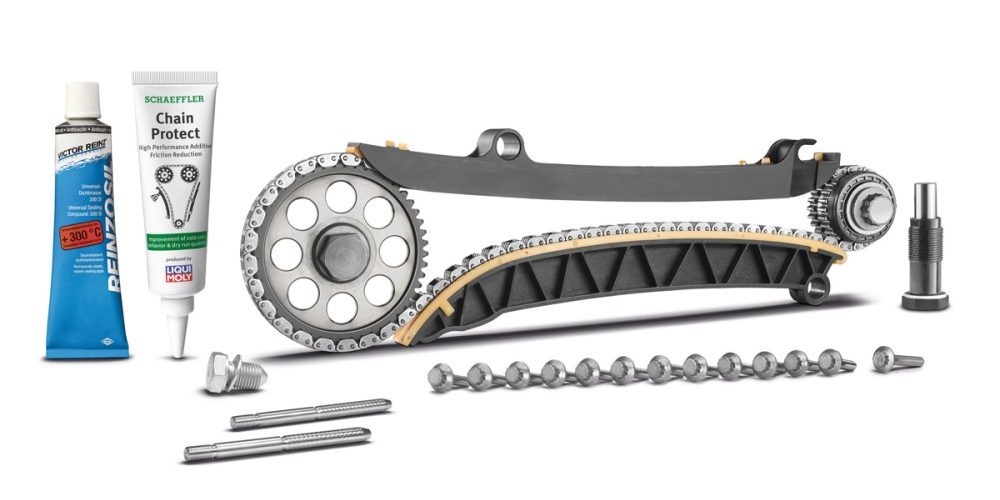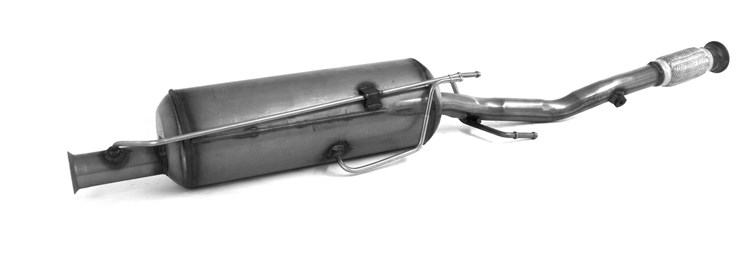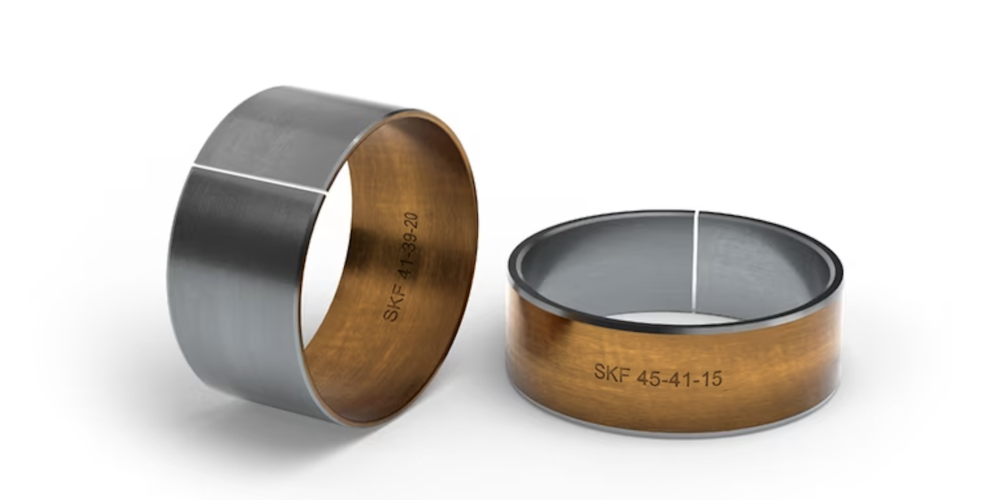Strut mounts & shock absorber mounts
What are strut mount and shock absorber mount?
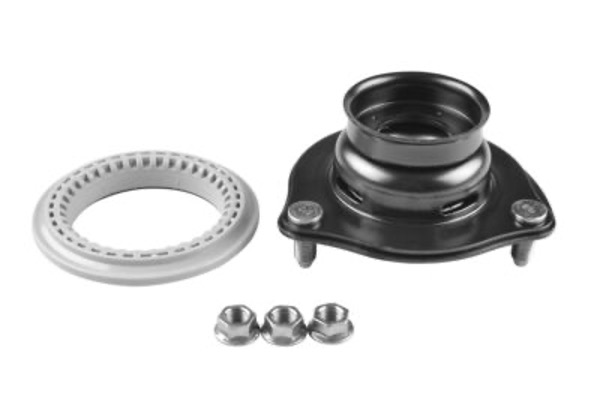
TED20035 – Front shock absorber mount upper left / right (kit with bearing) for Honda Civic IX. Photo by TEDGUM.
The strut mount or shock absorber mount are important parts of the suspension that connect the wheel suspension to the body. The shock absorber mount most often consists of a metal housing filled with a rubber (or other material) damping element, and in the case of McPherson strut mounts, it includes a bearing that allows the strut to rotate during steering movements, thus ensuring smooth and precise steering. In addition, the shock absorber or strut mount allows the angle of the shock absorber or strut to the car body to be adjusted in some limited range.
Another function of the these mounts is to dampen noise and vibrations that could be transferred to the body.
The forces acting on the strut or shock absorber mount
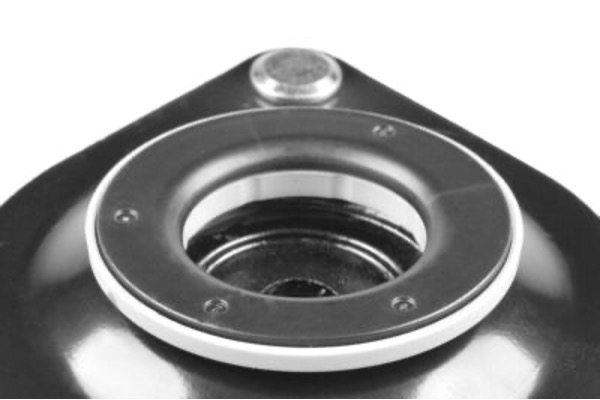
The shock/strut mount transmits both vertical vibrations from the wheel, and in the case of mounting with a bearing, it must additionally allow smooth rotation appropriately. In this case, the high quality of the bearing is important, which can maintain smooth operation under heavy loads. In addition, it transfers loads in the direction of travel of the car.
What are the most common failures?
The most common failures in the strut/shock mounts are damages to the damping element (usually rubber) or the bearing, less often the metal housing is damaged. In the case of some mounts, it is possible to replace the bearing separately or the rubber element with the bearing. Thanks to this, the metal housing can be reused, and thus replacement can be less expensive. Nevertheless, in a large part of cases it is necessary to replace the entire element.
How do I know if the strut/shock mount is damaged?
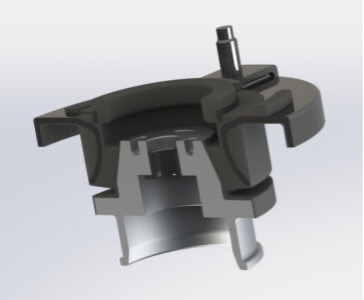
The following symptoms may indicate damage to the shock absorber mount:
– a loud impact when driving through a hole in the road or a moderate when driving over a speed bump
– heavier or ever jerky steering
– greater than usual play in the steering wheel and longer moments of inertia when turning
– popping noises while turning
Can I drive with damaged strut mounts?
Shock absorber mounting is an element that is directly related to driving safety due to the fact that it is a component of the wheel suspension system. A damaged mount can cause:
– extended braking distance
– limited control of the vehicle’s steering system
– problem with maintaining the correct track
– increased overload on the shock absorbers, leading to their faster wear
– uneven tire wear on both sides of the vehicle
Replacing the strut mounts – what should pay attention to?
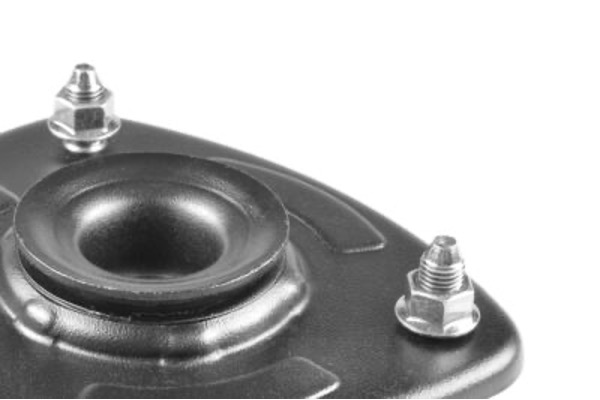
Replacing the strut mount requires the removal of the strut, it is necessary to use spring compressors. It should never be done “at home” without professional equipment, as sudden decompression of the spring can lead to loss of health or life.
If the strut mount is damaged on one side of the vehicle, it is recommended to replace the mount also on the other side so that the entire system works uniformly on both sides. When replacing the mount, remember to tighten the mounting bolts when the car is in neutral position (it is not lifted on the jack). It is also important that the mounting bolts are not tightened too much, which could lead to over-compression of the bearing. In such a situation, the bearing could heat up too much during operation, which may lead to its faster wear.
As is the case with the replacement of shock absorbers, it is also recommended to set the suspension geometry in the case of replacing the strut mounts.

